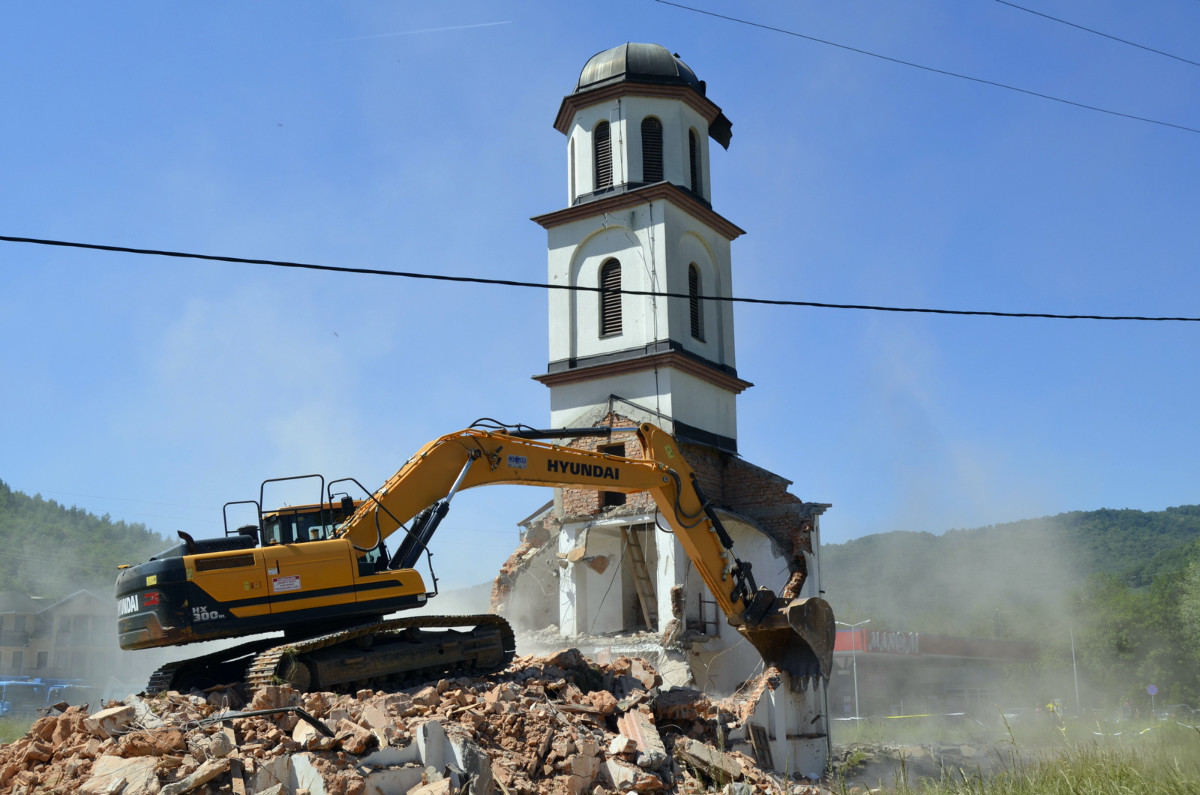Sarajevo, Bosnia-Herzegovina
AP
Bosnian authorities on Saturday demolished a Serbian Orthodox church that was illegally built on land owned by a Bosniak woman, a move that comes after a 20-year legal battle that saw the case reach the European Court of Human Rights.
Workers and construction machinery arrived at Fata Orlovic’s yard in the village of Konjevic Polje early Saturday. Using a crane, they brought down the white-colored church and its tower bell.

An Orthodox church is demolished in Konjevic Polje, the village next to Srebrenica in Bosnia, on Saturday, 5th June. Bosnian authorities have demolished a Serbian Orthodox church illegally built on the land owned by a Bosniak woman after a 20-year-long legal battle that reached the European Court of Human Rights. Workers and construction machinery arrived at Fata Orlovic’s yard in the village of Konjevic Polje early Saturday. PICTURE: AP Photo/Sladjan Vasic.
The European Court of Human Rights ruled in October, 2019, that authorities must remove the church and pay damages to the Orlovic family totaling €31,000.
The church was built shortly after Orlovic and her family were expelled from the village, 20 kilometres east of Srebrenica during the 1992-95 Bosnian War. The family are Bosniaks, who are mostly Muslim, and the village was taken by Bosnian Serbs, who are mainly Orthodox Christians.
“Thank God we finally saw this happen,” said Orlovic, who is in her late 70s. “I am exhausted after 20 years.”
“Now, finally, I can sit down and have a cup of coffee in my yard without being chased out. I have never done anything wrong to them,” she added.
Orlovic’s husband was among some 8,000 Bosniak men and boys murdered by Bosnian Serb forces in Srebrenica in 1995, the worst carnage of the ethnic conflict. The Srebrenica massacre has been acknowledged internationally as Europe’s only genocide since World War II.
Upon returning to her village after the war, Orlovic’s demands that the church be removed were ignored. In 2000, she launched legal proceedings to force the authorities of Republika Srpska, the name of the postwar Serb-run entity in Bosnia, to comply.
Orlovic’s lawyer Rusmir Karkin told Bosnian media that he expected a quick removal of the debris from Orlovic’s land.
“A lot of people are working and the weather is nice, so I expect everything to be over by tomorrow,” he said.
Local authorities have said they will rebuild the Orthodox church at the entrance to the village.
Bosnia remains deeply ethnically divided long after the war ended in 1995 in a US brokered peace agreement. More than 100,000 people were killed in the conflict and millions had to flee their homes.






